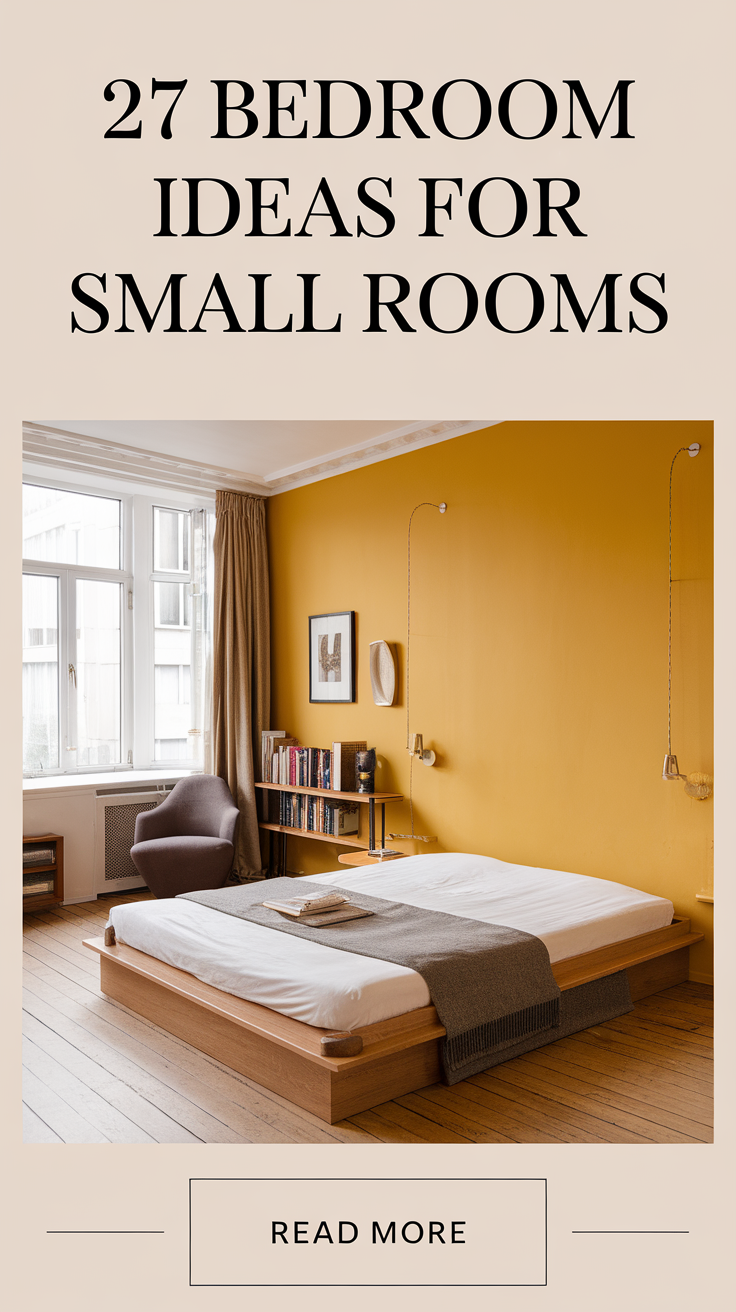How to Create a Calming Bedroom to Improve Your Sleep in 2025
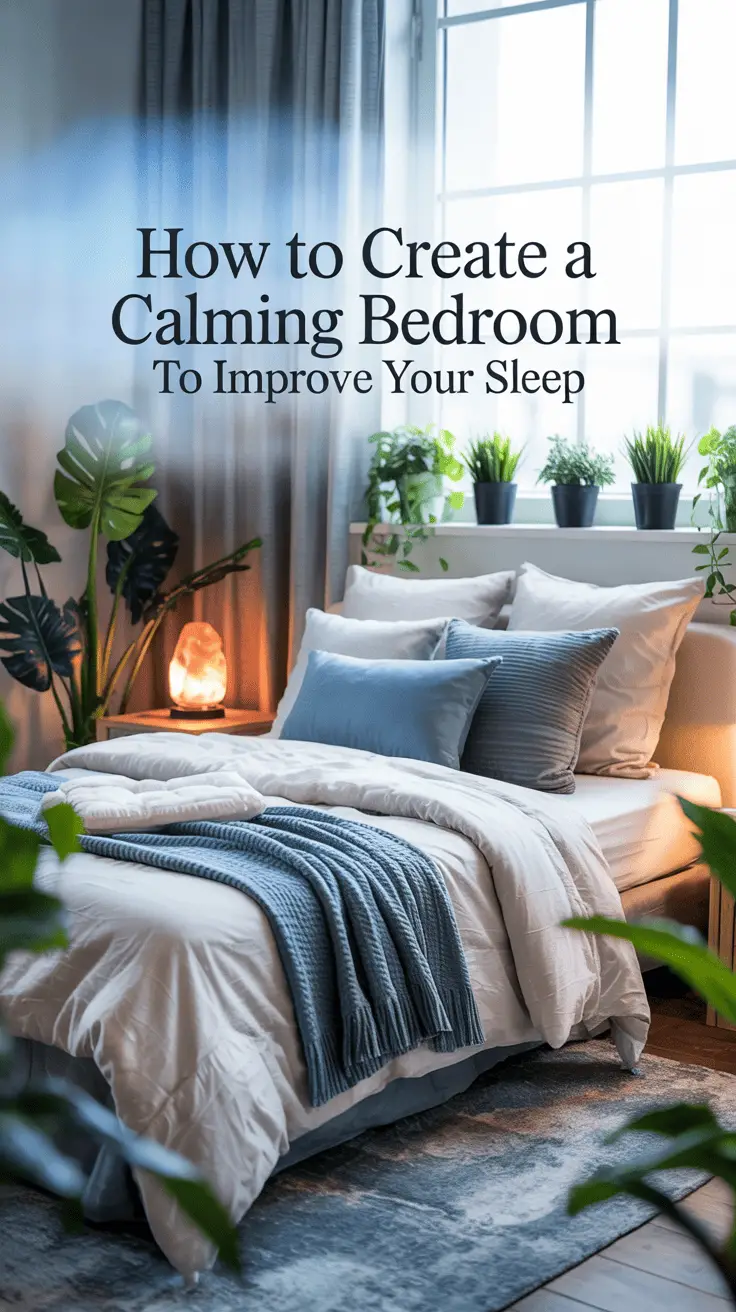
Approximately 50% of adults in the United States report struggling to get a good night’s sleep. Could it be that quiet and peace is now a premium in this world of constant dopamine stimulation? Redesigning your bedroom may very well be a solution.
In this guide, we will walk you through how to unveil a relaxing bedroom environment designed to improve your sleep in 2025. Every detail from the color of light bulbs and paint to sleep-friendly technology integration requires meticulous attention. Irrespective of your anxiety, overwork, or restlessness, we’ll help you turn your space into a sanctuary.
Who might be helped from reading this article?
- Individuals struggling to initiate or maintain sleep
- Overworked employees needing effective recovery periods
- Parents balancing between sleep and their busy schedule
- People interested in wellness or intrigued by interior design
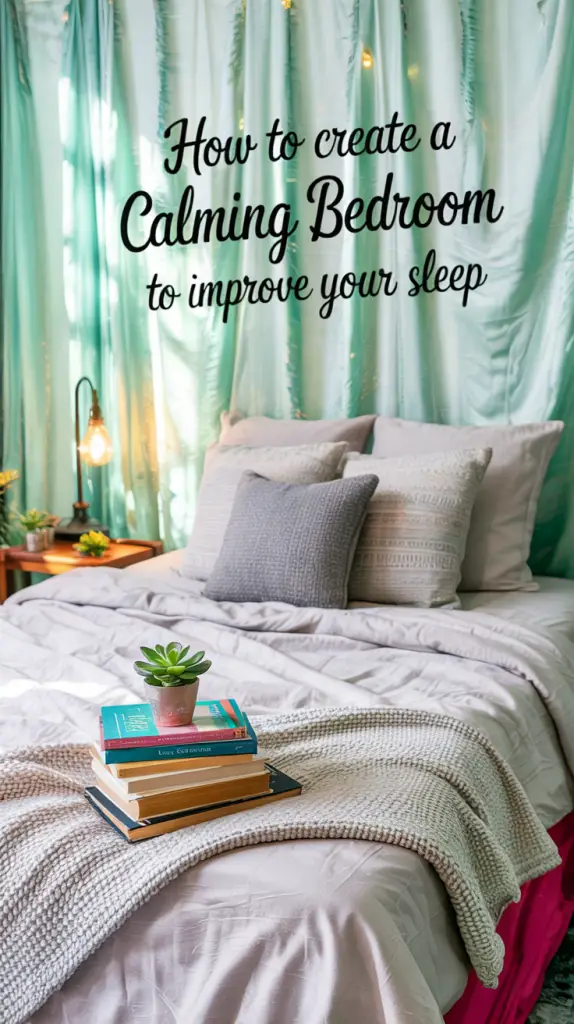
Why Changing The Bedroom Will Be Important In 2025
Modern life has brought with it new sleep saboteurs: excessive screen time, urban noise, and over-scheduled calendars. The CDC states that 35% Americans sleep less than seven hours a night, and that number will keep rising if we don’t make active changes to how our bedrooms function.
Redesigning a relaxing bedroom has many benefits beyond aesthetics, it can also unlock enhanced mental and physical health. Sleep affects the body’s immunity, mood, ability to concentrate and even control weight. The year 2025 marks a renewed emphasis on “restorative living,” which is the shift towards fostering spaces that enable the body to deeply relax and recuperate.
Are you actually resting in your bedroom… or just crashing into bed at the end of the day?
How to Rest in a More Restorative Environment
Creating a truly restful space starts with subtle design choices that speak to your senses—light, color, and texture all play a powerful role in how deeply you can unwind.
Lighting: Use Warm Light
Lights influence how your body recognizes rest time. Ensure that you maintain low warm lights (2200K-2700K) as anything too blue or cold can suppress melatonin. Smart bulbs like Philips Hue or Wyze let you dim or change light settings according to your rest rhythms.
Avoid: Exposure to bright screens 1 hour before bed, harsh overheads
Do: bedside lamps with amber bulbs or dimmable switches to set the mood.
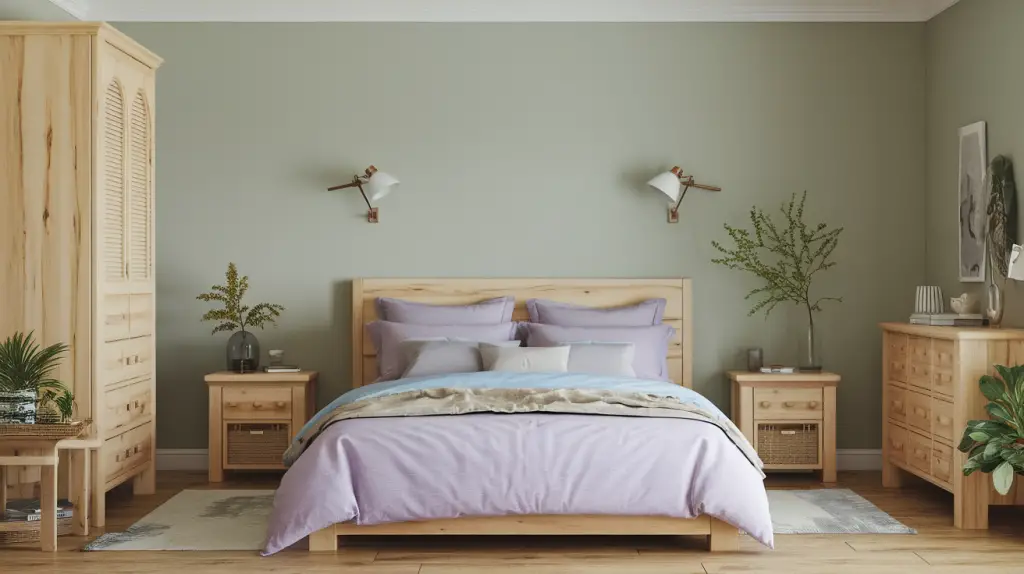
Colors and Textures: Balancing the Senses
While in 2025, the world is still seeing bedroom palettes trends, nature themed/current neutral will be sage soft, lavender gray plus sky blue. All these colors help calm the nervous system whilst decluttering the space visually.
Use fabrics like:
- Linen
- Organic cotton
- Muslin
Stimulating and soothing shiny or overly patterned fabric should be avoided.
| Emotional Effect | Color Palette |
|---|---|
| Grounding | Sage Green |
| Calming | Lavender Gray |
| Cooling & Relaxing | Soft Blue |
Tip: Use matte finish bedding and curtains to minimize light reflection and visual noise.
The Sensory Experience: Scent, Sound, And Air
Transform your bedroom into a multisensory sleep sanctuary with calming scents, soothing sounds, and fresh air flow designed to lull you into deep rest.
Deep Sleep Aromatherapy
Lavender, bergamot, and sandalwood are well-known relaxing scents that lower the heart rate and calm the mind. The trend in 2025 is towards natural diffusers and pillow sprays as opposed to synthetic candles.
Methods of relaxation using scents include:
- Diffusers with timer settings
- Linen sprays on pillows and sheets
- Aromatherapy pouches placed underneath mattresses or in nightstand drawers
Soundscapes: Soft noise to enhance sleep
For those who find it difficult to sleep in silence, white noise or relaxing sounds such as ocean waves, rain, or forest sounds can be helpful. The LectroFan EVO and the Calm and Headspace apps allow users to create a bedtime routine that signals to the brain that it is time to sleep.
Air Quality and Ventilation
It is important to maintain air quality as well. Having clean and cool air enables temperature regulation which improves comfort during breathing. Take into consideration:
- HEPA air purifiers
- Opening windows in the early evening
- Indoor plants like snake plant or peace lily
Have you ever thought about falling asleep while listening to rainfall with a spritz of lavender? Mind-blowing.
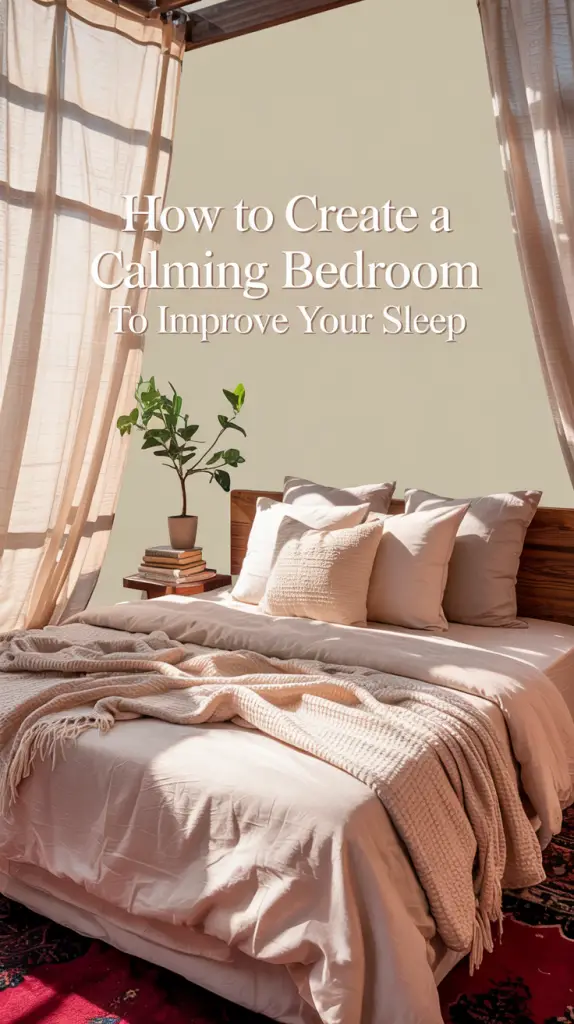
Furniture, Layout and Minimalism: Less is Deeply More
When it comes to designing a calming space, your furniture choices and layout set the tone for everything else.
Less Clutter
Visual chaos creates cognitive clutter. A clean bedroom provides a framework for a clutter-free environment which enables the brain to destress. To help, choose multifunctional furniture with hidden storage to help keep surfaces clear. If possible, get rid of the work desk altogether.
Bow Down to the Bed
A good mattress should cater to your sleep style, whether you are a side sleeper or a back sleeper. As of now, hybrid memory foam mattresses are the market leaders due to their pressure relief capabilities and motion isolation features. This will be the norm in 2025.
Checklist:
- Medium firmness for most adults
- Breathable bedding
- Superfluous pillows should not exceed 2-3
| Mattress Type | Best For |
| Memory Foam Hybrid | Side & combo sleepers |
| Latex | Hot sleepers |
| Innerspring | Budget & back sleepers |
Sleep-Friendly Tech: Digital Minimalism with a Purpose
Using technology in a purposeful way can aid you. Here is how to create a balance between helpful tools and screen-free zones.
What to Include:
- Smart Lights With Circadian Rhythm Features
- Sunrise Alarm Clocks That Gently Wake You
- Air Quality Monitors Featuring Humidity Control
What to Remove:
- Smartphones On The Nightstand
- Televisions (“Sleep Timers” Included)
- Blue Light After 9 PM
Pro tip: Charge your phone in another room. You’ll sleep better and wake up feeling calmer.
Your 2-Day Bedroom Transformation Plan
Want to change your space this weekend? Here’s your step by step blueprint:
Day 1: Declutter and Refresh
- Remove All Unnecessary Items From Surfaces
- Rearrange Furniture For Better Flow
- Clean Windows And Light Fixtures
- Vacuum Under The Bed And Replace Filters
Day 2: Add Calming Elements
- Replace Harsh Bulbs With Warm Dimmable Bulbs
- Introduce A Relaxing Scent (Lavender Or Cedarwood)
- Set Up A White Noise Device Or App
- Simplify Decor And Choose Breathable Bedding
Goal: Design a bedroom that visually whispers, “You are safe. You can rest now.”
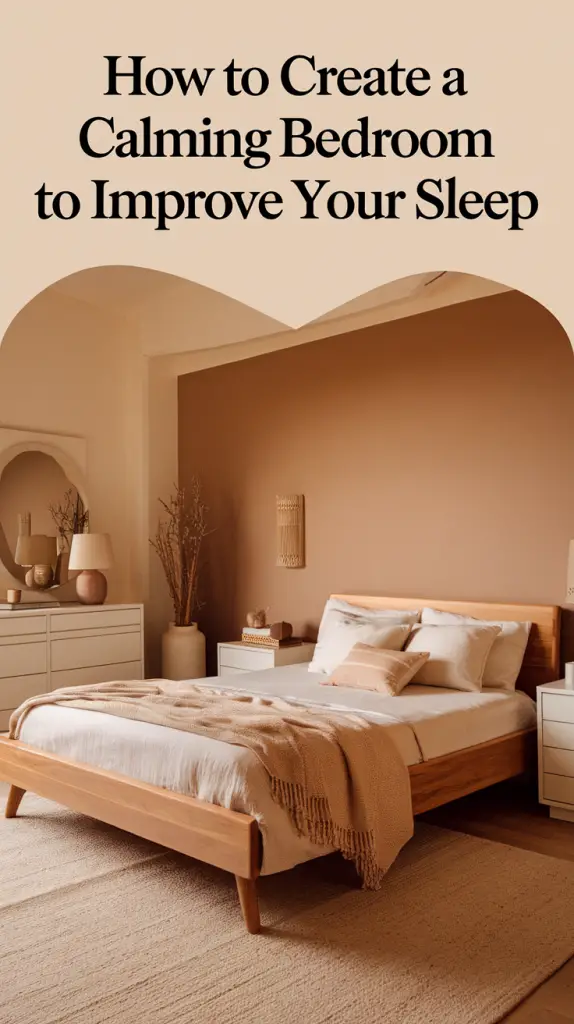
Final Thoughts: Sleep Is Self-Care
Life isn’t slowing down in 2025. Your bedroom can.
To summarize:
- Relaxation is invited by warm light and cool air.
- Mental clutter is eliminated by minimalist design.
- Rest is deepened by sensory cues such as sound and scent.
- Your sleep should not be disturbed by tech gadgets.
Your room should not only be a sleep area. It should also be a restorative retreat. So why not start now?
What will you change first in your bedroom? Tell us in the comments!
[Share on Facebook] [Tweet this] [Save on Pinterest]

